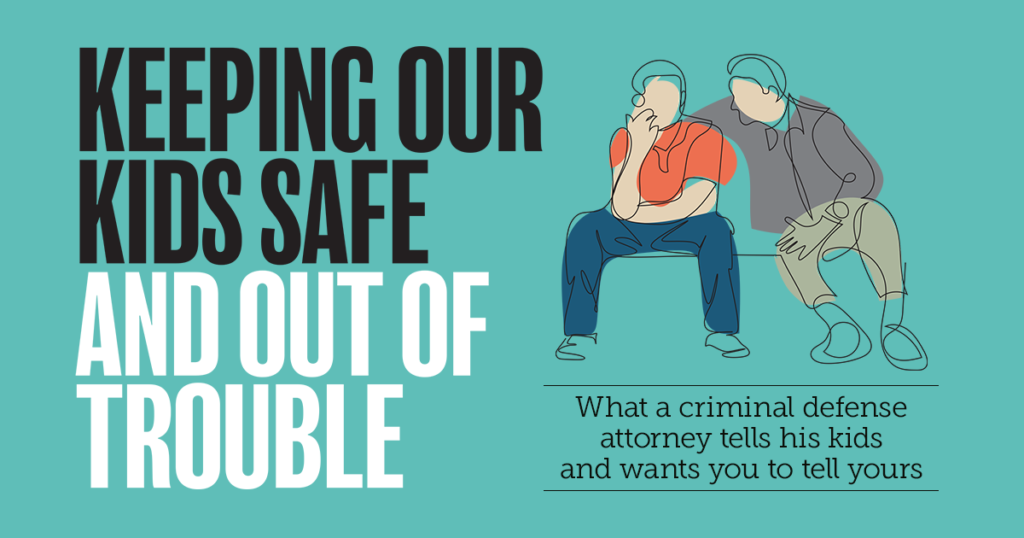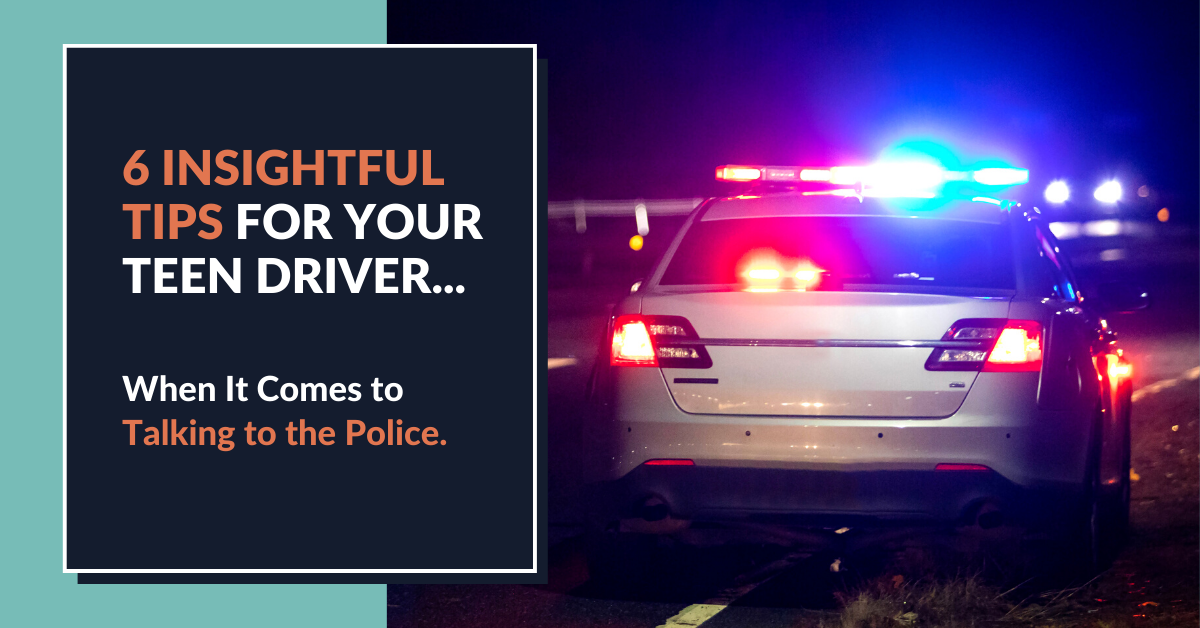Talking to the police can be terrifying no matter your age. You’re driving your car, you see the red and blue lights in your rearview mirror, and suddenly your heart is going a mile a minute and your stomach drops into your shoes. Even if you’ve done nothing wrong, it’s intimidating. Once your child starts driving, chances are he will have an interaction with the police sooner or later. As a parent, it’s important to have a conversation with your kids before that happens, so that they don’t rely on their panic response when the cops pull them over. Here are a few points that will come in handy.
-
- Listen. If a cop gives you a direct request (i.e., “license and registration, please.”), you should comply. If he tells you to get out of the car, get out of the car. If he tells you to get on the ground, get on the ground. This is not a time for discussion or trying to reason with an officer. There is no appropriate reaction other than compliance when you receive a direct order from law enforcement.
- Be Respectful. This should go without saying, but don’t talk back. Don’t ever call the officer a derogatory name. Don’t try to slip a cop a crisp new $50 bill, thinking he’ll let you mosey out of a speeding ticket. You’ll wind up with an attempted bribery charge. Most of all, do not have an attitude. Even if you’re tired or the cop is being unfair, it’s never worth it. Remember, when a cop pulls you over, he is in control. Let him be and hopefully you’ll get through the situation relatively unscathed.
- Always Record If You Are Able. If you can, record any interaction you have with the police. The officer will then be less able to make false claims, especially when it comes to unlawful searches. That said, it can be difficult and come off as disrespectful to start recording as soon as the officer pulls you over. If a friend is present, commission him or her to be on subtle recording duty. If you have an iPhone, you can use the “I’m getting pulled over” shortcut with Siri. Once you say those words to Siri, your iPhone will turn on the “Do Not Disturb” function of your phone, send your location to the designated contacts you set up, and begin recording video. Another option is to download the American Civil Liberties Union’s (ACLU’s) Mobile Justice app, which allows the user to record video that will automatically be downloaded to a server. So, if the phone is destroyed, the video will not be.
- Follow All Directions During Traffic Infractions Tell your teen the following: “When you see that telltale red and blue in your rearview, here’s what you should do.”
- Never Leave the Scene of an Accident. This is obviously a more frightening scenario, which is likely to set off the “fight-or-flight” instinct. Do your best to ignore the instinct to flee. When you get in an accident, you have an obligation as a license holder to do certain things:
- Exchange insurance and contact information with the other driver if there is physical damage.
- If someone is hurt, you must not only exchange information, but you must call the police.
- Do not, under any circumstance, leave the scene of the accident. If you leave, you may be charged with a violation for “leaving the scene.” Even if you drive only four blocks away out of panic or just around the corner to call your parents, you can be charged with a misdemeanor. .
- Become Familiar With These Common Questions From Police Officers. While the safest course of action is to refuse to speak to the police even if you are an adult, not acceding to an officer’s wishes can feel not only terrifying but next to impossible. So, let’s talk about a few ways that teens can respond to common questions that cops might ask.
-
-
- Do you know why I pulled you over? If it’s obvious what you did was wrong, and the offense is a minor infraction, I suggest being honest without being overly informative (i.e., say “I guess I was going a little fast,” instead of “I was going 20 miles over the speed limit.”)
- Where are you coming from? Where are you going? Police ask these questions to get you talking so they can look for signs of impairment. You should give short, direct answers (e.g., “I’m driving home from my friend’s house,” or “I am going to the movies.”). Remember: The more you talk, the more you can get in trouble.
- Can I search your car? Unless the officer has a warrant or evidence of criminal activity in plain view, he is technically not allowed to search your car without your permission. That said, if an officer wants to search your car, and if there is a trial at a later point, he will say you gave him permission or that the contraband was in plain view… and the jury will probably believe him. That’s why, if possible, you shouldn’t give the officer any reason to want to search your car. Be quiet and be cooperative. Do not make any actions that make you look like you are hiding something or potentially putting the officer in danger.
-
As a criminal defense attorney, I’ve instilled in my children at a young age the proper protocol for talking to the police should they be pulled over by an officer. Lucky for me, they haven’t had to use my good advice. I hope the same will be true for your kids. 
Keeping Our Kids Safe and Out of Trouble
To learn more about Talking to the Police, and other issues that parents and teens face click below to purchase my new book Keeping Our Kids Safe and Out of Trouble: What a Criminal Defense Attorney Tells His Kids and Wants You to Tell Yours.
